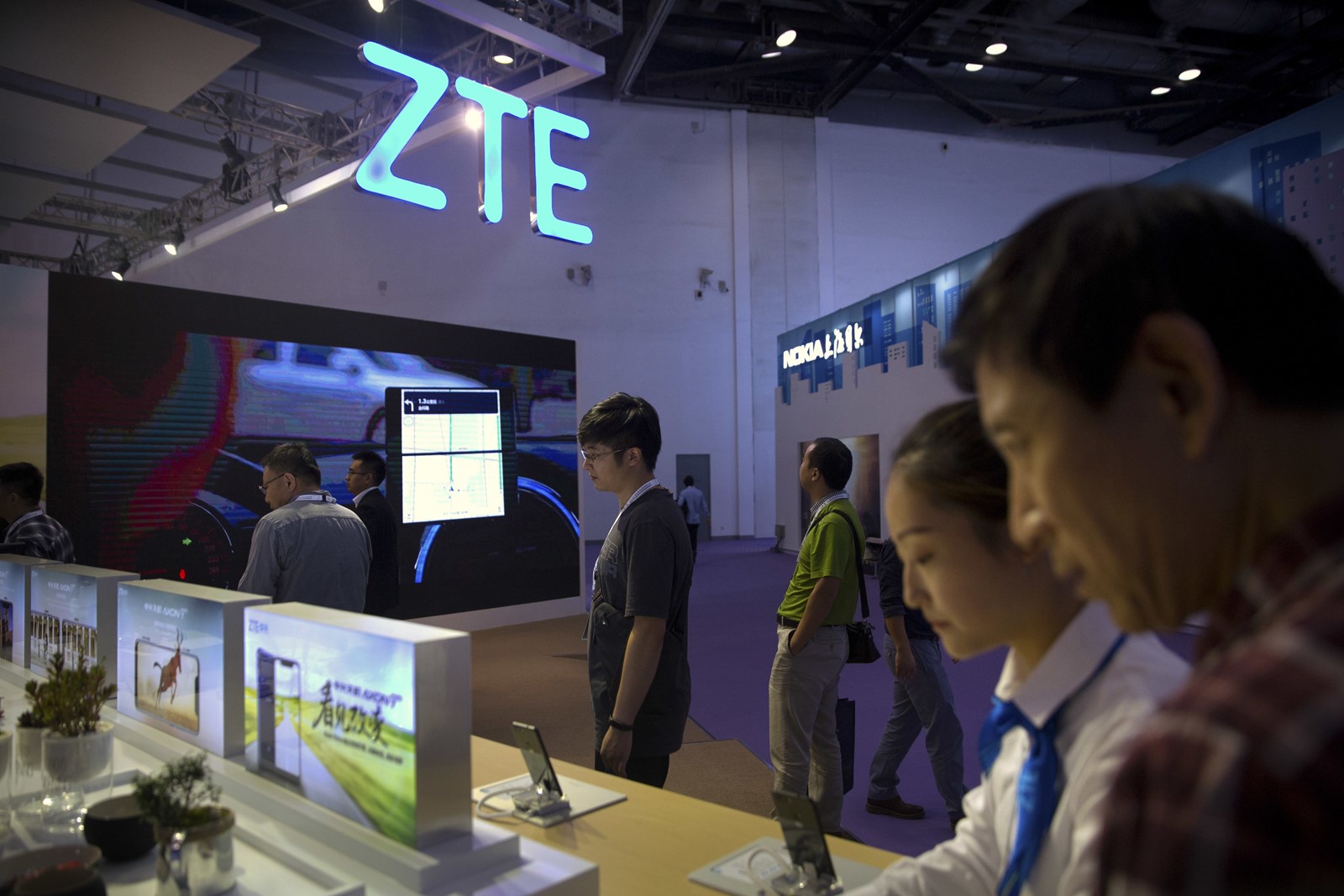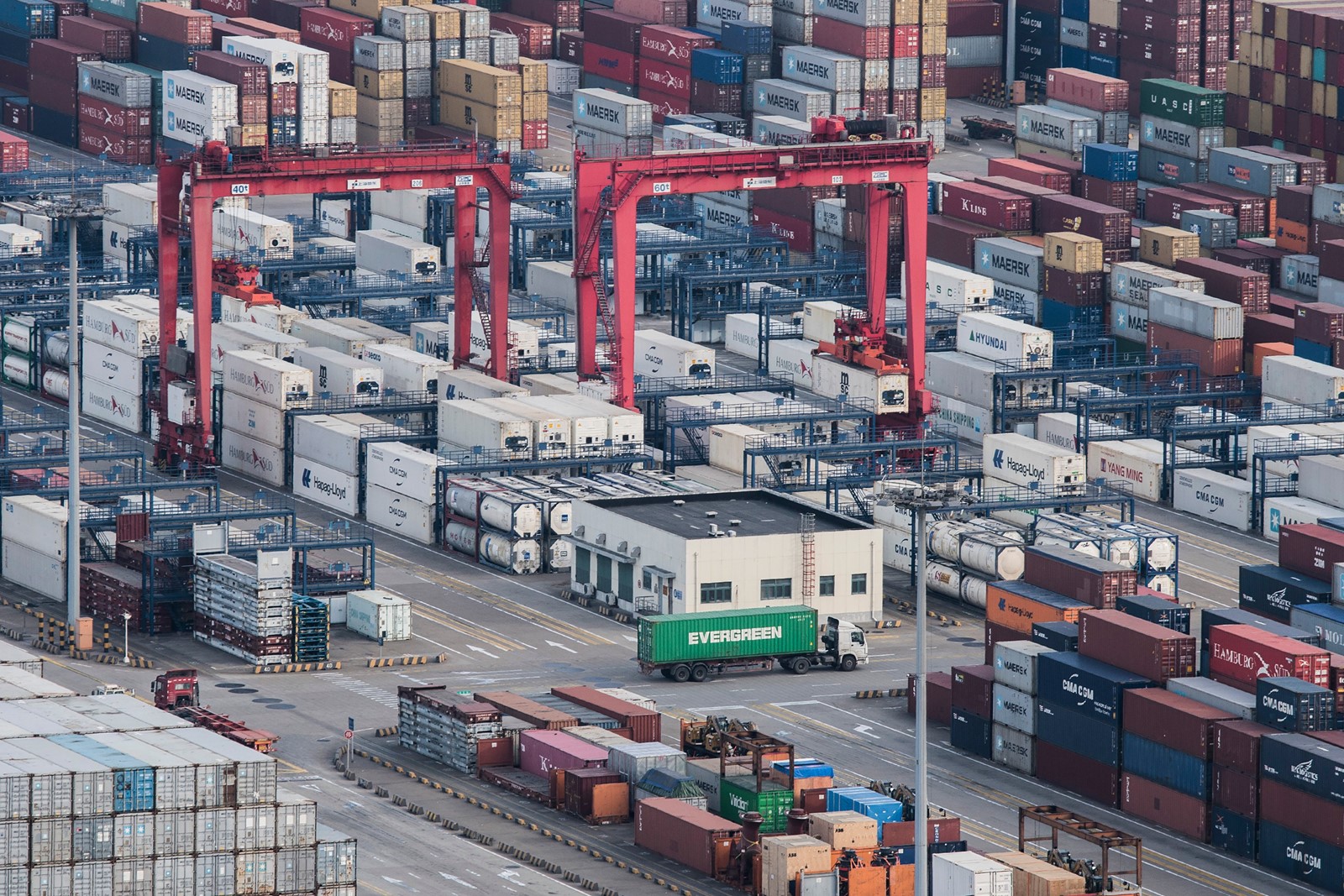Pence escalates criticism of China
Beijing is guilty of ‘unprecedented’ election meddling, the vice president says.


Pence ripped into China for what he described as military aggression in the region, “debt diplomacy” abroad and religious oppression at home. Speaking at the conservative think tank Hudson Institute, he repeated the president’s recent accusation that Beijing is attempting to influence the U.S. midterm election to undermine Trump’s leadership and American democracy.
“China has initiated an unprecedented effort to influence American public opinion, the 2018 elections and the environment leading into the 2020 presidential elections,” Pence asserted.
The vice president suggested the Chinese election-meddling campaign was worse than Russian activities, even though there’s been no evidence that China has undertaken anything like the Russian hacking and propagating of stolen information to disrupt the 2016 presidential election.
Pence’s speech comes amid an escalating trade conflict between the world’s two largest economies and just days after a U.S. naval ship nearly collided with a Chinese military vessel in the waters around the disputed islands in the South China Sea.
Relations between the United States and China are already at the lowest level in years, and the vice president’s remarks could stiffen Beijing’s resolve and reinforce the long-held thinking on the part of Chinese leaders that the United States is intent on containing China’s rise.
Trump, without providing specifics, said last week at the United Nations that China was trying to interfere with the U.S. election. “They do not want me or us to win because I am the first president ever to challenge China on trade,“ he said.
Pence on Thursday cited as evidence Beijing’s counter-tariffs targeted at American farmers and states that Trump had won, as well as a four-page ad by the state-run China Daily in the Des Moines Register. He pointed to a recent Chinese government notice to exploit potential divisions in U.S. domestic affairs. And Pence said a senior intelligence official had told him last week that “what the Russians are doing pales in comparison to what China is doing across this country.”
But directing tariffs at farmers and politically sensitive parts of America is a time-worn practice in trade conflicts; the European Union and Canada also have slapped retaliatory duties on U.S. farm goods and products like bourbon and Harley Davidson motorcycles that are produced in the home states of senior lawmakers. Buying ads in American newspapers to air political opinions is commonplace, although an arm of the U.S. could hardly do the same in China’s tightly controlled media.
“Many of these things are China trying to get its points across. And for some, it’s interference in the U.S. politics. But for others it’s simply China stating its views,” said David Bachman, a China scholar at the University of Washington in Seattle.
Pence described the Chinese actions as a “comprehensive and coordinated campaign,” saying that “Beijing is employing a whole-of-government approach, using political, economic and military tools, as well as propaganda, to advance its influence and benefit its interests in the United States.”
Bachman said it appeared that Pence’s speech was foreshadowing “a whole-of-government response from the United States, so it looks like the relationship is going to continue to deteriorate.”
Chinese officials have denied that the government interferes in the domestic politics of other nations. At the same time, their lobbying and financial dealings abroad also have raised concerns about China’s power and influence in Australia and some other countries.
In many ways, Pence’s 40-minute speech encapsulated the administration’s hard-line stance on China following reports from various agencies — economic, military and intelligence — that collectively have identified China as an adversary like Russia.
Many in Congress and the broader U.S. policy and business communities also have become more wary of China in recent years as Chinese President Xi Jinping has clamped down on dissent and pursued more muscular nationalistic policies at home and abroad. And while many also agree that tougher American action is needed, Trump’s oft-stated praise for Xi and Trump’s haphazard and unpredictable moves have left many questioning his administration’s strategy.
Derek Scissors, a China scholar at the conservative American Enterprise Institute, said he heard nothing new in Pence’s speech but nonetheless regarded it as an important signal: “I take this as a warning of more actions to come,” he said, adding that they are likely to be both economic and non-economic.
Up to now, much of Trump’s focus on China has been on trade. He has slapped tariffs on about $250 billion of Chinese imports and is threatening to double that amount, to force Beijing to open up markets and halt unfair policies such as requiring foreign firms to hand over technologies to have access to Chinese markets.
Pence’s speech hinted that there could be further restrictions not only on Chinese trade and investments, but possibly Chinese individuals and groups.
“Look no further than the Chinese Students and Scholars Assns., of which there are more than 150 branches across American campuses,” Pence said. “These groups help organize social events for some of the more than 430,000 Chinese nationals studying in the United States; they also alert Chinese consulates and embassies when Chinese students, and American schools, stray from the Communist Party line.”
There have been recent reports that the administration may be looking at Chinese groups and scholars to register as foreign agents, and has even considered banning Chinese foreign students.
Asked about such measures, the Chinese ambassador to the United States, Cui Tiankai, told National Public Radio: “I think if this is true, I think that this is a very dangerous situation because so many Chinese students are studying here and a growing number of American students are studying in China.”
Of the increasingly fraught relations between the two countries generally, Cui said: “I think between any two countries, maybe especially between China and the United States, there is a certain degree of competition.
“This is only natural,” he added. “But there’s also a much larger need for cooperation. We have to cooperate whether we like it or not. This is a growing mutual need and a common interest.”
Pence, in his speech, said the United States wanted a “constructive relationship with Beijing,” and urged Chinese leaders to change course toward reform and opening.
But in closing, he said, reciting Trump’s credo, that “we will not relent unless our relationship with China is founded on fairness, reciprocity and respect for our sovereignty.”


